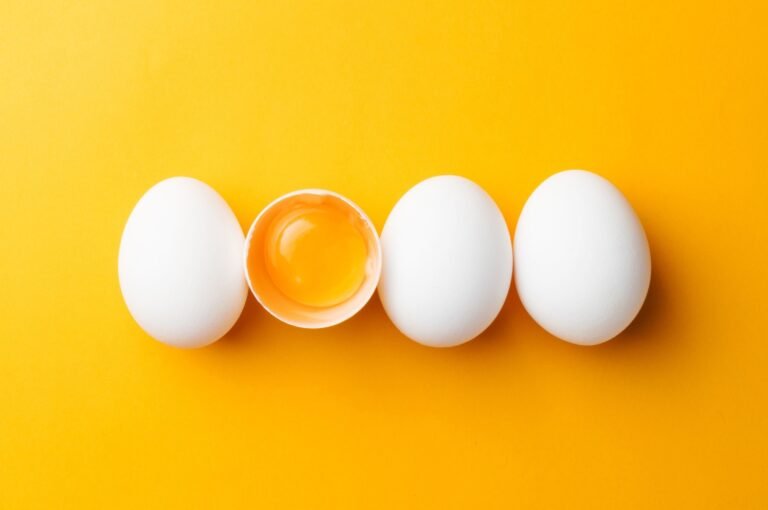A new study finds that eating an egg a day could reduce your chances of developing dementia, while eating too few or too many eggs may not be as beneficial. Learn more about how this affordable, nutrient-dense food can protect your brain health.
Study: Association between egg consumption and dementia in Chinese adults. Image credit: MasAnyanka / Shutterstock
In a recent study published in the journal Nutrientsresearchers investigated the association between egg consumption and dementia among Chinese adults through a population-based case-control study. Their results show that eating eggs daily may reduce the risk of dementia, but eating too many eggs (more than twice a day) or not eating them showed no significant effects. More evidence is needed to guide dietary recommendations.
Background
Dementia is a major public health issue, affecting more than 55 million people worldwide. This number is expected to increase to 152 million cases by 2050, as approximately 10 million people develop the condition each year. Prevention is critical as dementia cannot be cured.
The role of diet in reducing the risk of dementia has been studied, with research suggesting that eating seafood and the Mediterranean diet (including eggs) may be protective against the condition.
Eggs are rich in nutrients and other beneficial compounds, such as vitamin D, folate and choline. They are also an essential and affordable source of protein. However, they may also raise cholesterol levels and have been implicated in a higher risk of heart disease, diabetes, and mortality in the United States but not in Asian or European populations.
There is also some evidence that eating eggs could reduce the risk of cognitive decline, but the findings are mixed. In China, which faces the world’s highest burden of dementia and is also the largest producer and consumer of eggs, understanding the relationship between the two is critical to guiding prevention strategies.
About the study
The researchers recruited 233 people who had been diagnosed with dementia and 233 ‘control’ people who were confirmed not to have dementia, all of whom were over the age of 50.
The former were recruited through a hospital’s dementia management system, while the latter were recruited from community health clinics during screenings for elderly residents.
Participants provided information about their medical history, lifestyle, and demographics. Their egg intake was categorized into more than twice a day, weekly, monthly, and less than monthly.
Statistical modeling was then used to assess the association between dementia and egg intake and to calculate odds ratios after adjustment for other dietary characteristics, health conditions, lifestyle, socioeconomic status, gender, and age.
Findings
The 466 subjects were 73.6 years old on average. 63.5% of participants were female, while 57.7% reported having less than a high school education.
People in the dementia group were older and tended to have lower incomes and education. They also showed a higher prevalence of smoking, no or low alcohol use, Parkinson’s disease, head injuries, stroke and heart disease. They reported higher consumption of red meat and lower intake of fruits, vegetables, poultry and fish.
Regarding the frequency of egg intake, less than 3% of participants ate eggs twice a day, while 35% ate them daily, 36.7% weekly, 12% monthly, and 13.5% either consumed less than once a month or avoided eating eggs altogether. On average, people who consumed eggs twice a day were older, and those who consumed them monthly represented the youngest group.
The researchers found that higher income and educational level were associated with higher egg consumption. However, more frequent consumption was also associated with higher rates of smoking, and people with chronic kidney disease reported lower egg consumption. While depressed subjects ate more eggs, those with chronic kidney disease reported lower consumption.
Significant differences in dietary intakes (pork, beef, poultry, fish, fruits and vegetables) were found in egg intake levels. Lamb consumption was the only dietary intake that did not show a positive relationship with egg intake.
The study found that weekly and monthly egg consumption was associated with a higher risk of dementia than daily consumption. However, there was no significant difference in the risk of dementia between those who ate eggs twice a day and those who ate no eggs at all. This pattern remained after the researchers adjusted for health behaviors, income, education, gender, and age.
conclusions
Overall, increasing egg consumption from monthly to weekly to daily was associated with a reduced risk of dementia, and those who ate eggs daily had the lowest odds of dementia. The results showed that not eating or eating too much eggs did not significantly change the risk. These results were independent of health conditions, diet, smoking, education and age.
The underlying mechanism could be that eggs are rich in omega-3 fatty acids, choline, antioxidants and protein. However, the researchers warned that eating more than two eggs a day could raise cholesterol levels, which could increase the risk of dementia.
The study adds to a growing body of evidence on the relationships between egg consumption and cognitive function in different populations, although previous research has shown mixed results.
Limitations of the study include the fact that the exact amount of eggs consumed was not measured and that participants with dementia were significantly older than those without, which may have influenced the findings. Further research is needed to enhance understanding of this relationship.
